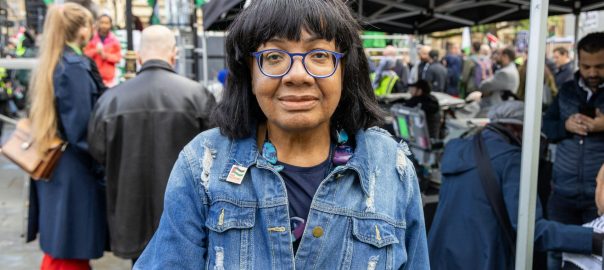Orly Siow, Lund University and Sofia Collignon, Queen Mary University of London
Yet again a black woman in British public life has been subjected to racist and sexist abuse. This may be shocking, but it is not surprising.
When Tory donor Frank Hester said that looking at Diane Abbott “makes you want to hate all black women” his comments were extreme. Yet they were hardly out of the ordinary.
Likewise, the reluctance of some parliamentary colleagues to address the racial and gendered nature of the comments is sadly unsurprising, as was the slowness with which the prime minister responded, only belatedly and after pressure from ministers, admitting the remarks were racist.
Whether you love or loathe Abbott (who has been suspended from the parliamentary Labour party for her own comments on race) this is more than a story about a single individual.
All politicians in the UK are facing increasing levels of violence, harassment and abuse. Data from the representative audit of Britain survey shows that in 2019, 49% of parliamentary candidates indicated that they had suffered some form of abuse, harassment and intimidation while campaigning. This is a rise of 11 percentage points compared with 2017.
However, evidence also shows ethnic minority women face exceptional dangers in public life. Variation in experiences of harassment and intimidation is enormous: 63% of ethnic minority women candidates reported experiencing abuse compared with 38% of ethnic minority men, 34% of white men and 45% of white women.
The intimidation experienced by ethnic minority women also sometimes originates within their own political parties. Muslim women in both Labour and the Conservatives have spoken up about this problem.
On top of this, black women experience specific forms of anti-black racism combined with misogyny. African American scholar Moya Bailey coined the term “mysogynoir” to describe this phenomenon in the US, but the UK also abounds with examples. For example, in 2016, Dawn Butler, another black woman Labour MP, revealed that she had been mistaken for a cleaner by a fellow MP. She said this was just a single example of “so many incidents” in parliament.
And although headlines often ostensibly celebrate “diversity” in politics, campaign press coverage also subjects minority ethnic women to extreme scrutiny. This renders figures such as Abbott hyper-visible, at the same time as being exceptionally negative in tone and narrowly focused on ethnicity and gender.
Untangling the relationship between these forces is extremely tricky. While black and minority ethnic women MPs are uncomfortably visible, the ethnic minority women that all MPs are supposed to represent actually face a crisis of representation in parliament.
They are very rarely spoken about in parliamentary debates, and when they are, it is usually by white men and in relation to an extremely narrow range of issues, such as female genital mutilation and trafficking. There is less debate about how race and gender permeate many other aspects of minority ethnic women’s lives.
Taking black and ethnic minority women MPs seriously
While Frank Hester’s comments are therefore deeply concerning, they should not be viewed as an exception. Racial and gendered inequalities are still rife in British politics, and they hit black and ethnic minority women the hardest.
We cannot treat examples like this as isolated incidents or as being the work of “bad apples”. Instead, we need to take heed of clear patterns in the data and ask uncomfortable questions about political institutions. What would it take to eliminate these dynamics from political parties, parliament and the press?
Perhaps one way to start is to listen to, and take seriously, the words of people like Abbott herself. In response to Hester’s remarks, she revealed how vulnerable she feels when just travelling around her constituency.
“For all of my career as an MP I have thought it important not to live in a bubble, but to mix and mingle with ordinary people,” she said. “The fact that two MPs have been murdered in recent years makes talk like this all the more alarming.”
When his comments were exposed, Hester admitted that he had been “rude about Diane Abbot in a private meeting several years ago” but insisted that his comments “had nothing to do with her gender nor colour of skin”. The character of Hester’s apology itself speaks to the normalisation of abuse and incivility, as well as racism and sexism.
Abbott and others have told the public before that they are frightened and that they are unable to do their jobs because of the dangers involved. If we start to take them seriously, we resist both the normalisation of incivility in public life and the comfortable notion that politics is now a level playing field.![]()
Orly Siow, Associate Senior Lecturer in Gender Studies, Lund University and Sofia Collignon, Lecturer in Comparative Politics, Queen Mary University of London
This article is republished from The Conversation under a Creative Commons license. Read the original article.

